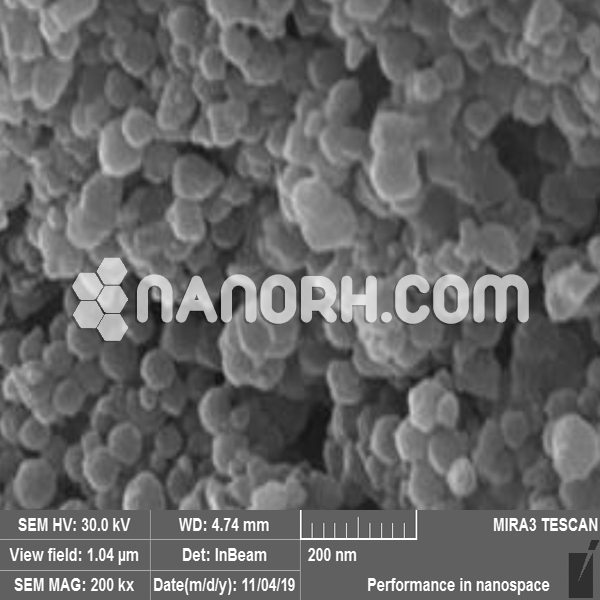| Manganese Nitride Nanoparticles | |
| Product No | NRE-5152 |
| CAS No. | 12646-17-2 |
| Formula | Mn3N2 |
| APS | <100nm (Can be Customized) |
| Purity | 99.9% |
| Color | Gray |
| Molecular Weight | 192.83 g/mol |
| Density | 5.9g/cm³ |
| Melting Point | 1800°C |
| Boiling Point | NA |
Manganese Nitride Nanoparticles
Introduction
Manganese nitride nanoparticles is an inorganic compound composed of manganese and nitrogen. Manganese is a transition metal known for its versatility in forming alloys and its useful electronic and magnetic properties, while nitrogen is a highly reactive element, often imparting significant changes in material properties.
Applications
Catalysis:
Catalysts in Chemical Reactions: Manganese nitride nanoparticles are valuable as catalysts in various chemical processes, such as hydrogenation, nitrogen fixation, and carbon dioxide (CO₂) reduction. The high surface area and reactivity of the nanoparticles enhance the efficiency of catalytic reactions, making them essential for industrial-scale processes.
CO₂ Reduction: Mn₃N₂ nanoparticles have been explored for use in CO₂ reduction, a key process for mitigating climate change. Their ability to convert CO₂ into valuable chemicals, such as methane or alcohols, positions them as a promising material for sustainable energy and carbon capture technologies.
Ammonia Synthesis: Manganese nitride has been proposed as a catalyst for ammonia synthesis through the Haber-Bosch process. This reaction is crucial for fertilizer production, and using Mn₃N₂ nanoparticles could lead to more efficient, low-energy synthesis methods.
Energy Storage and Conversion:
Batteries and Supercapacitors: Due to their high conductivity and surface area, manganese nitride nanoparticles can be utilized in energy storage devices such as lithium-ion batteries, sodium-ion batteries, and supercapacitors. They improve charge/discharge rates, increase energy density, and enhance cycle stability, making them suitable for use in consumer electronics, electric vehicles, and large-scale energy storage systems.
Electrocatalysis: Mn₃N₂ nanoparticles are also considered for electrocatalytic applications, including fuel cells and electrolyzers. Their catalytic properties can aid in the conversion of hydrogen and oxygen into electricity, contributing to the development of clean energy technologies.
Magnetic Materials:
Magnetic Storage: The magnetic properties of manganese nitride nanoparticles make them valuable in magnetic storage applications, such as hard disk drives, magnetic random-access memory (MRAM), and data storage devices. The nanoparticles’ ability to exhibit both ferromagnetic and antiferromagnetic behaviors can be leveraged for higher-density storage and faster data retrieval.
Magnetic Sensors: Mn₃N₂ nanoparticles’ magnetic characteristics make them useful in developing magnetic sensors. These sensors can detect changes in magnetic fields and are employed in a variety of applications, such as position sensing, industrial monitoring, and automotive technologies.




